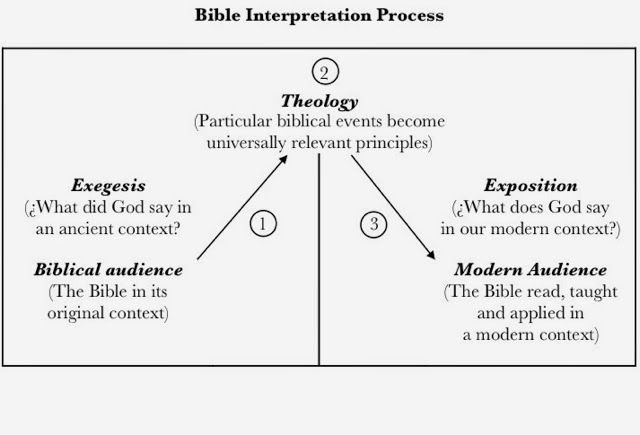· Biblical Studies · 6 min read
Foundational Old Testament Core Principles: Genesis Creation Truth Revealed & Psalms for Spiritual Growth
Explore the foundational Old Testament core principles through the Genesis creation truth and Psalms for spiritual growth. Uncover the timeless wisdom and inspiration in these biblical texts for enriching your Christian faith journey.

Foundational Old Testament Core Principles: Genesis Creation Truth Revealed & Psalms for Spiritual Growth
The Old Testament holds immense importance for Christians as it provides foundational core principles that shape their understanding of God, creation, and spiritual growth. In this article, we will explore eight key questions related to these foundational principles and delve into the insights the Old Testament offers. By examining the Genesis creation truth revealed and the role of Psalms in spiritual growth, we will gain a deeper understanding of the Old Testament’s significance in the Christian faith.
1. What are the timeless principles derived from the Old Testament?
The Old Testament serves as a wellspring of timeless principles that continue to guide believers today. One such principle is the concept of the laborer being worthy of wages, which is drawn from passages like 1 Corinthians 9:9-14 and Luke 10:7. This principle underscores the value of work and highlights the importance of just compensation for one’s labor.
Another foundational principle is exemplified by Habakkuk 2:4, which states, “the just shall live by faith.” This verse is cited multiple times in the New Testament (Romans 1:17) and emphasizes that faith is essential for righteous living. It reminds believers that their trust in God should be unwavering, forming the bedrock of their relationship with Him.
2. How does Genesis reveal the truth about creation?
Genesis, the first book of the Old Testament, unveils profound truths about creation that have shaped Christian beliefs throughout history. The account of God creating the heavens and the earth (Genesis 1:1) establishes God’s sovereignty as the Creator. This truth underpins the Christian worldview, affirming that God is not a distant figure but an active participant in His creation.
Furthermore, Genesis affirms humanity’s unique position in God’s creation. Genesis 1:27 declares that humans are created in the image and likeness of God, imbuing every person with inherent dignity and worth. This foundational truth forms the basis for Christian teachings on the sanctity of human life and the responsibility to care for God’s creation.
3. How do Psalms contribute to spiritual growth?
The book of Psalms, a collection of poetic prayers and songs, plays a vital role in the spiritual growth of Christians. The Psalms provide a rich tapestry of emotions and experiences, allowing believers to express their deepest joys, sorrows, doubts, and praises before God. They serve as a guide for believers to navigate the complexities of life, offering comfort, encouragement, and hope.
Moreover, the Psalms provide a model for authentic worship and prayer. They teach believers how to approach God with reverence, honesty, and vulnerability. By engaging with the Psalms, Christians can deepen their intimacy with God and cultivate a deeper understanding of His character.
4. How do Old Testament principles shape our understanding of God’s will?
The Old Testament offers principles that help believers discern and understand God’s will for their lives. One such principle is the need for a receptive attitude when approaching God’s Word. Having a genuine desire to know God’s will and an honest heart to accept it, even when it challenges us, is essential (Principle 6: Maintain a Receptive Attitude).
Additionally, the Old Testament reveals that obedience to God’s commands is crucial for understanding His will. As believers align their lives with His principles and precepts, they develop a deeper understanding of His character and desires.
5. How does the Old Testament contribute to our understanding of salvation?
The Old Testament lays the groundwork for understanding salvation in the New Testament. It reveals God’s redemptive plan for humanity through various covenants and promises made to individuals like Abraham and David.
For example, the Abrahamic covenant (Genesis 12:1-3) foreshadows the promise of salvation for all nations through the coming Messiah. The sacrificial system in the Old Testament, particularly the Day of Atonement (Leviticus 16), prefigures the ultimate sacrifice of Jesus Christ, who would atone for the sins of humanity.
6. How does the Old Testament emphasize the importance of relying on God’s power?
The Old Testament repeatedly emphasizes that relying on God’s power, rather than human strength or wisdom, is essential for success. It showcases how God acts supernaturally beyond human understanding and demonstrates His power in various historical events.
One example is the story of David and Goliath (1 Samuel 17), where David, a young shepherd boy, defeats the giant Goliath through his unwavering trust in God. This account teaches believers that their strength lies not in their own abilities but in their dependence on God’s power.
7. What does the Old Testament teach us about the character of God?
The Old Testament provides profound insights into the character of God. It reveals Him as loving, just, merciful, and faithful. Throughout its pages, we witness God’s compassion and faithfulness to His people, even when they fail to uphold their end of the covenant.
For example, despite Israel’s repeated disobedience and idolatry, God remains steadfast in His love for them. His dealings with Israel demonstrate His commitment to justice, mercy, and redemption.
8. How can we apply Old Testament principles to our daily lives?
The principles derived from the Old Testament have practical applications for believers today. They provide guidance on how to live a life that pleases God and aligns with His will.
For instance, the principle of living by faith challenges believers to trust in God’s promises and rely on Him in all circumstances. This requires cultivating a deep and intimate relationship with God through prayer, studying His Word, and relying on the guidance of the Holy Spirit.
Additionally, the Psalms teach believers how to express their emotions and seek solace in God during both times of joy and seasons of difficulty. By practicing the principles found in the Old Testament, believers can experience spiritual growth, deepen their relationship with God, and find wisdom and guidance for their daily lives.
In conclusion, the Old Testament provides Christians with foundational core principles that shape their understanding of God, creation, and spiritual growth. By exploring the Genesis creation truth revealed and the role of Psalms in spiritual growth, believers gain valuable insights into these foundational principles. As they apply these principles to their lives, they can experience a deeper understanding of God’s will, grow in their faith, and live a life that aligns with His purposes.



